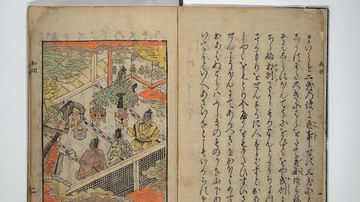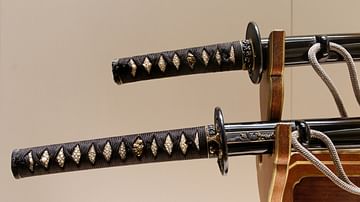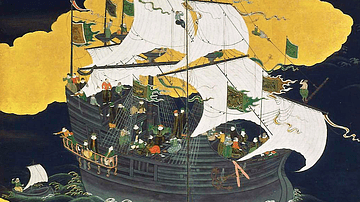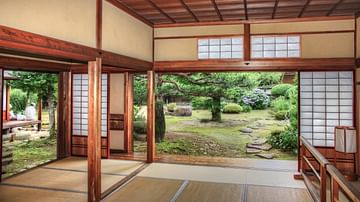Search
Search Results

Definition
Roman Mythology
The ancient Romans had a rich mythology and, while much of it was derived from their neighbors and predecessors, the Greeks, it still defined the rich history of the Roman people as they eventually grew into an empire. Roman writers such...

Article
Ancient Korean & Japanese Relations
Ancient East Asia was dominated by the three states known today as China, Japan, and Korea. These kingdoms traded raw materials and high-quality manufactured goods, exchanged cultural ideas and practices, and fought each other in equal measure...

Definition
Japanese Tea Ceremony
The Japanese Tea Ceremony (chanoyu or chado) is a cultural tradition involving very particular places, procedures, and equipment for drinking green tea. Originating as a habit of Chinese Buddhist monks to aid their meditation, tea-drinking...

Interview
Interview: Egyptian Mythology by Garry Shaw
World History Encyclopedia is joined by Egyptologist and author Garry Shaw to chat about his new book Egyptian Mythology: A Traveller's Guide from Aswan to Alexandria. Kelly (WHE): Do you want to start with telling us what the book is about...

Definition
Japanese War Tales
War tales (gunki monogatari) is a genre of historical writing that developed in Japan from the Heian Period (794-1185) to the Muromachi Period (1333-1573). They form an important element in the development of the Japanese literary tradition...

Definition
Samurai Sword
Swords used by Japanese samurai were renowned for the craftsmanship which produced strong yet flexible curved steel blades with a single, super-sharp cutting edge. Produced from the 8th century CE onwards and symbolic of the samurai's elevated...

Definition
Portuguese Nagasaki
Nagasaki, on the northwest coast of Japan’s Kyushu Island, was an important Portuguese trading base from c. 1571 to 1639, and the most eastern outpost of the Portuguese empire. The Portuguese presence transformed Nagasaki from a small fishing...

Article
A Traditional Japanese House
The traditional house of ancient and medieval Japan (1185-1606 CE) is one of the most distinctive contributions that country has made to world architecture. While the rich and powerful might have lived in castles and villas, and the poor...

Definition
Norse Mythology
Norse mythology refers to the Scandinavian mythological framework that was upheld during and around the time of the Viking Age (c. 790- c. 1100 CE). Complete with a creation myth that has the first gods slaying a giant and turning his body...

Definition
Meiji Period
The Meiji period refers to the period in Japanese history from 1868 to 1912 during which the Meiji Emperor reigned. Following the overthrow of the Tokugawa shogunate in the Meiji Restoration of 1868, Japan's new leaders embarked on a program...